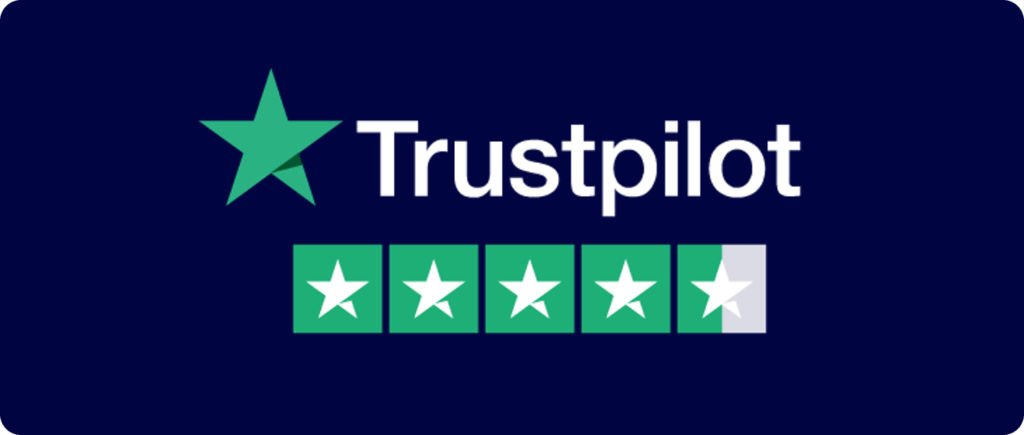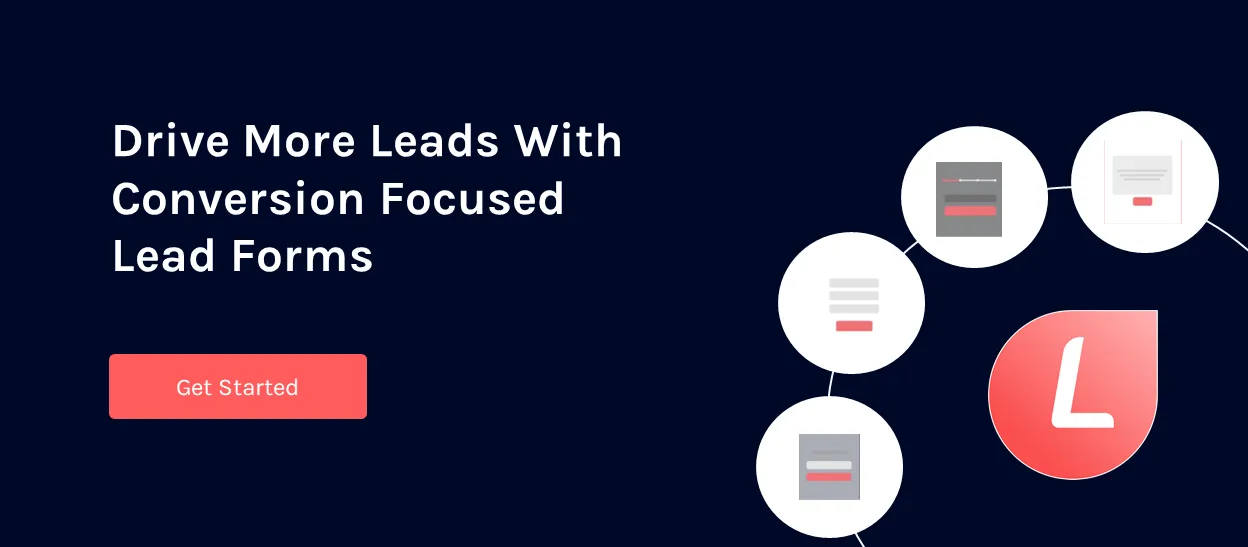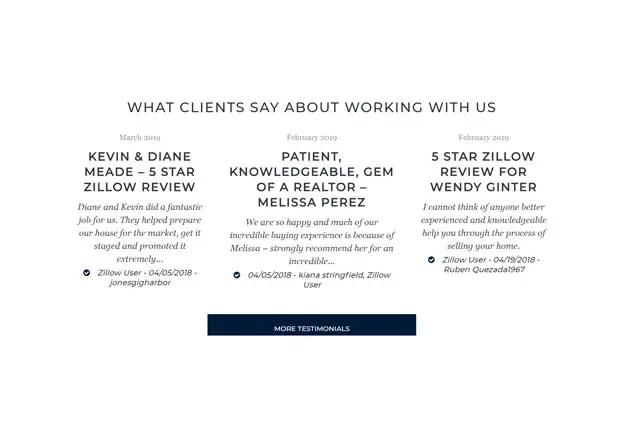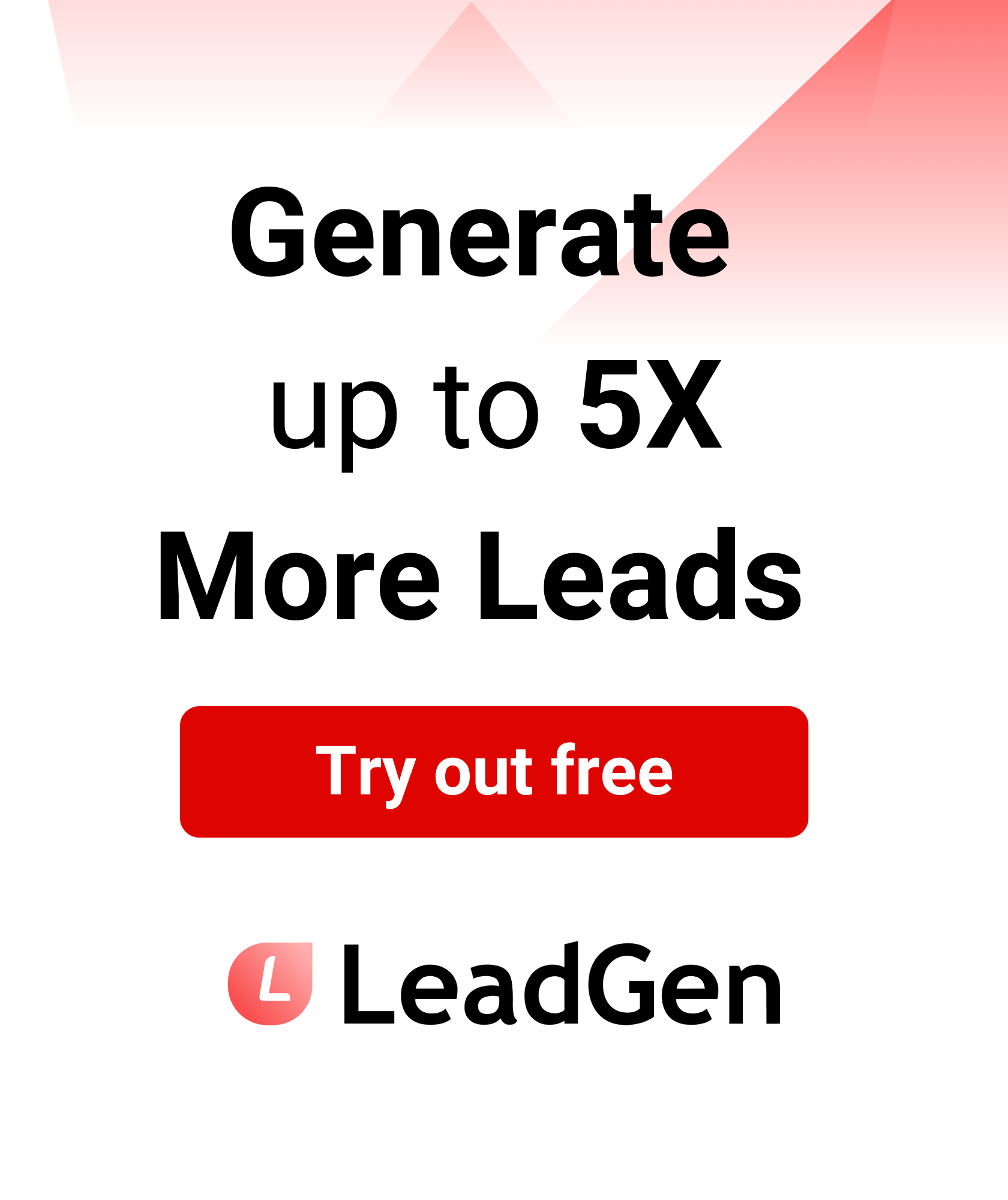Real Estate Lead Generation
How to drive qualified leads and close more sales in the real estate business.
Real Estate Lead Generation Guide
5 Best Tactics and Insights
Industry Lead Generation Tips > Real Estate Lead Generation
Ask any realtor what’s the best way to generate leads, and you’ll get a different answer each time.
From timeless tactics like cold calling and referrals to more modern, marketing-based solutions like email outreach and Facebook ads, it can be quite easy to get overwhelmed.
But one thing we can all agree on is that there’s nothing better than qualified leads who come to you. If you’re tired of getting on calls with cold prospects and putting in hours and days into developing relationships only for your leads to disappear on you, you should know that there are better ways.
For those involved in creating digital platforms or tools for lead generation, seeking help with coding assignment can be crucial in developing efficient algorithms and enhancing website functionalities that pre-qualify leads effectively.
By following the real estate lead generation tactics below, you can make it so that you’re working with qualified and relevant leads only. Leads who will be qualifying themselves through your website before even getting on a call with you. To ensure these high-quality prospects reach the right agents quickly, consider implementing Salesforce lead routing, which automates lead assignment based on territory, availability, or performance data. This helps real estate teams respond faster, reduce missed opportunities, and improve overall conversion rates.
To help you make the most out of the best real estate lead generation, here’s what we’ll cover:
- Top 5 Lead Generation Tactics For Real Estate Brokers and Agents
- Top 3 Real Estate Landing Page Examples
- Top 3 Real Estate Lead Form Examples
As a real estate agent, one of the strongest weapons in your lead generation arsenal is social proof and customer feedback.
Social proof is your reviews, testimonials, results, and social shares that make it easy for customers to trust you. For real estate, the best review portals you can leverage for social proof include:
- Zillow
- Yelp
- Realtor.com
- Trulia
- FSBO.com
- Foreclosure
By proudly displaying social proof on your website, focusing on digital experiences you’re showing your leads what kind of results you’ve accomplished for your previous customers and what makes you so trustworthy as a realtor.
The reason social proof works so well is because we’re psychologically predisposed to do something when we know others have done it too. This applies to making purchases and any other type of behavior too.
In real estate, where trust is everything, this becomes even more important as your customers have to make a complex decision that will have a huge impact on their lives.
For example, if a cold prospect sees on your website that you have a high client satisfaction rating from your previous clients and have 4+ years of expertise in a middle-class, suburban environment with plenty of previous clients, they’ll be more likely to work with you if that’s what they’re looking for.
You can also show how long you’ve been working in real estate, how many projects you’ve worked on, and more, to display your authority.
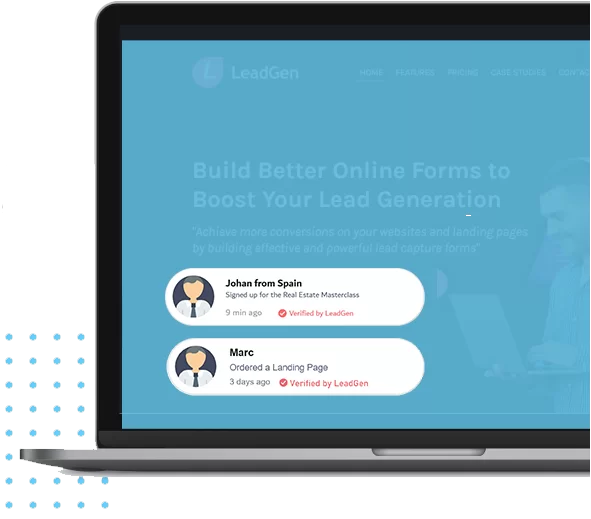
Showing proof via LeadProof popups, supporting lead generation in real estate
Now, if you’re wondering how to boost your social proof as a real estate broker, here are a couple of low efforts tactics you can start using today:
- Previous customer ratings and reviews.
- Testimonials from most successful clients.
- Likes and shares.
- Positive comments on your blog and listings.
- Badges and certifications.
- Client showcase.
- User count.
- Number of houses sold to demonstrate your longevity in the industry.
- Real-time stats on your website (e.g. if someone downloaded something from you, or filled in a form to contact you.).
Done well, social proof can turn your real estate website into a lead converting machine. If your prospects can see that other customers are regularly signing up for your services, they’ll be more likely to do so as well.
Which is why real-time stats, in particular, can be a strong source of social proof. With LeadGen App, you can make it so that a pop-up notifies your website visitors whenever someone fills in your form to get in touch with you (or any other form).
This, in turn, creates urgency and motivation for your visitors to do the same.
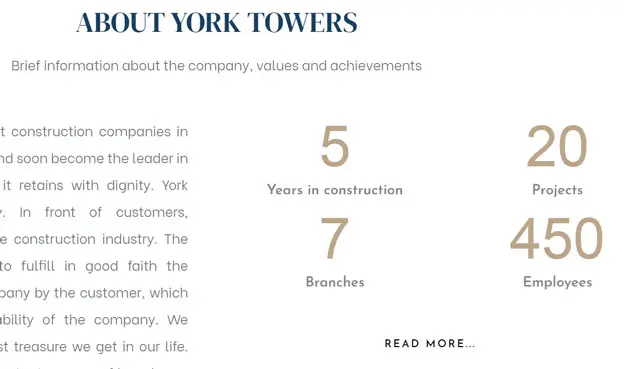
Source: YorkTowers.com
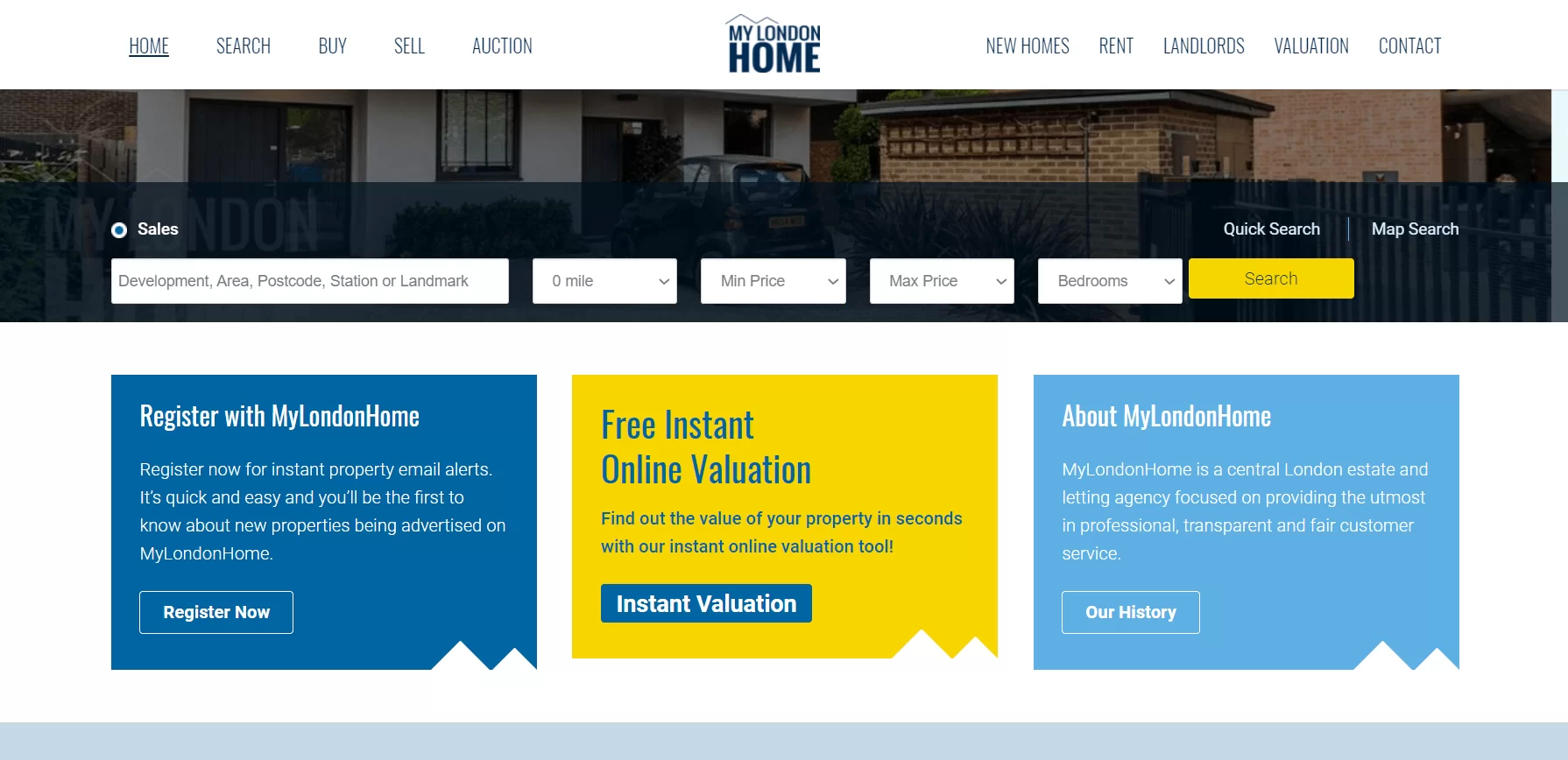
Source: MyLondonHome
2. Optimized landing pages for lead generation
A strong landing page can do most of the work for you to convert cold prospects into leads.
The purpose of it is to encourage visitors to take a certain action, usually related to your services, and to put them on the next step toward becoming your customers.
In the competitive world of real estate, where first impressions are vital, you would need, a software house experienced in digitalizing the industry, that understands beyond the landing page.
The entire user experience on the website is pivotal in ensuring potential buyers and sellers can easily navigate the platform, leading to successful transactions and satisfied customers.
Below, we’ll take a look at a couple of real estate landing page examples for inspiration. But until then, here’s what you need to know about personalized landing pages for specific audiences.
When someone clicks on your ad (for your real estate listing, service promotion, or some other platform), they’re telling you they’re interested in what you offer.
The next step is to present the right message at the right time.
The whole point of your landing page is to match your ad and drive conversions with a relevant Call to Action (CTA). You have to tell interested leads what to do next.
Your CTA should always support your conversion goal, which is usually related to your offer.
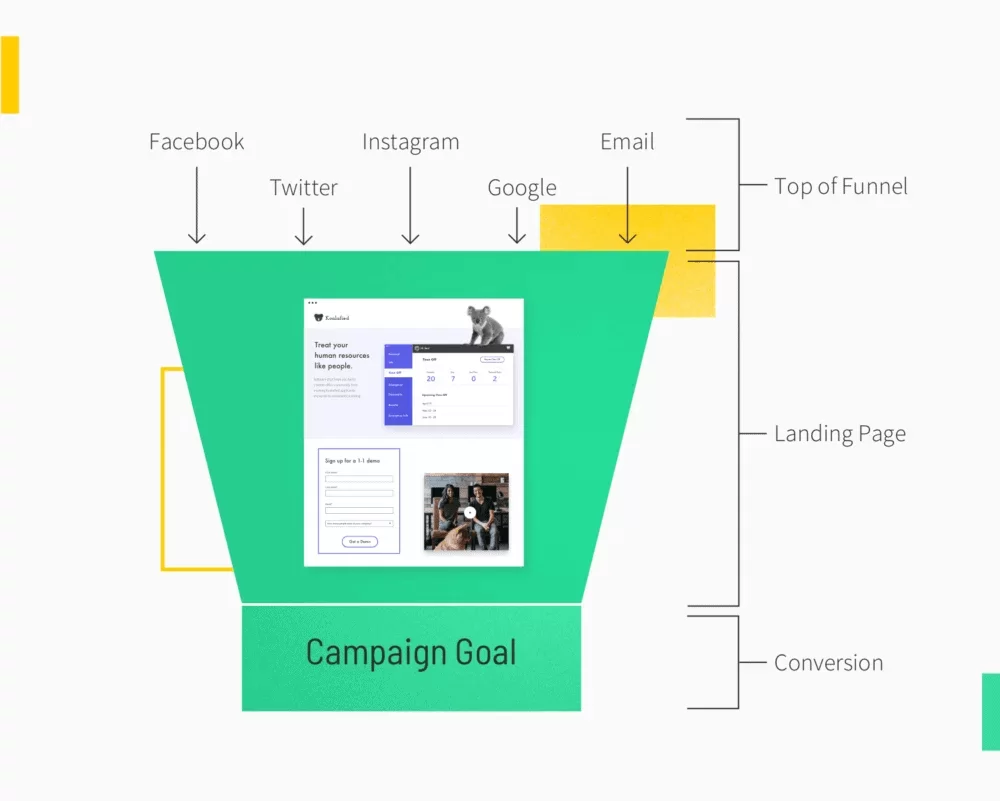
Source: Unbounce.com
So, your CTA could ask your visitors to fill in a form with a few questions about their down payment and contact information. Or if you’re looking to book more appointments, you can encourage visitors to select a time slot from your calendar and submit their phone number.
We’ll also be looking at web and contact form examples below, keep on reading.
There’s a lot of different ways you can modify your CTA, and it will largely depend on your objective.
But if you want your landing page to have an impact and to drive action, there are certain steps you can take to increase your conversion rates. Such as:
- Minimizing links and menu items.
- Highlighting CTAs.
- Using multi-step forms (more on this below).
- Maximizing the number of different lead offers.
- Adding exit intent pop-ups.
- Retargeting your prospects with Facebook ads.
- And more.
3. Lead magnets
Lead magnets are valuable content offers on a web page that your visitors can access in exchange for contact information (usually email and first name).
A good lead magnet bridges the gap from awareness of your company’s existence to sympathy and trust in your brand. Over time, this will increase your lead quality too.
A good real estate lead magnet that converts should:
- Solve a problem of your potential customers.
- Promise one main success or goal they’ll get from your lead magnet.
- Present your expertise.
- Be easy to digest and of high value.
And for a lead magnet to be successful, it needs to have the following:
- A landing page that provides an irresistible offer for your target audience.
- Clear messaging so that it can be understood in an instant.
- Top-notch content delivery that lives up to your promise.
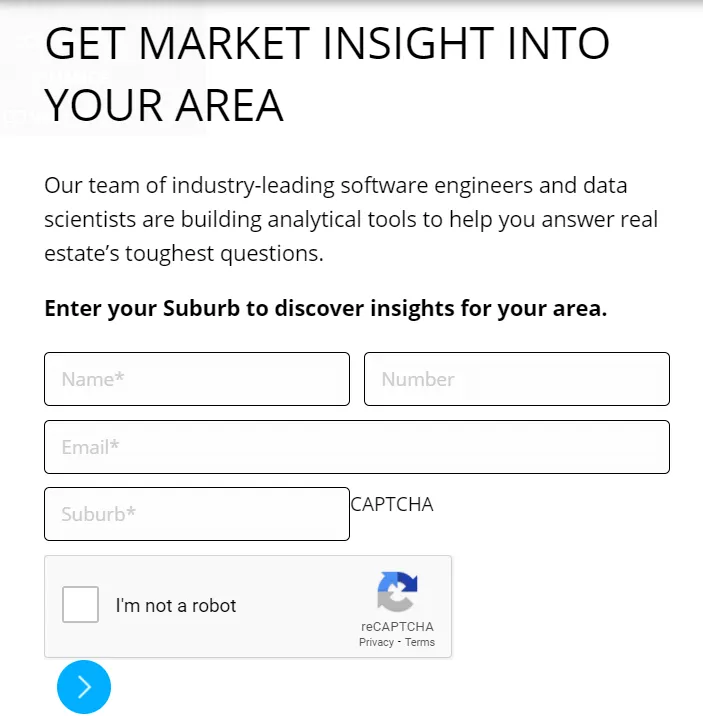
Source: Atrealty
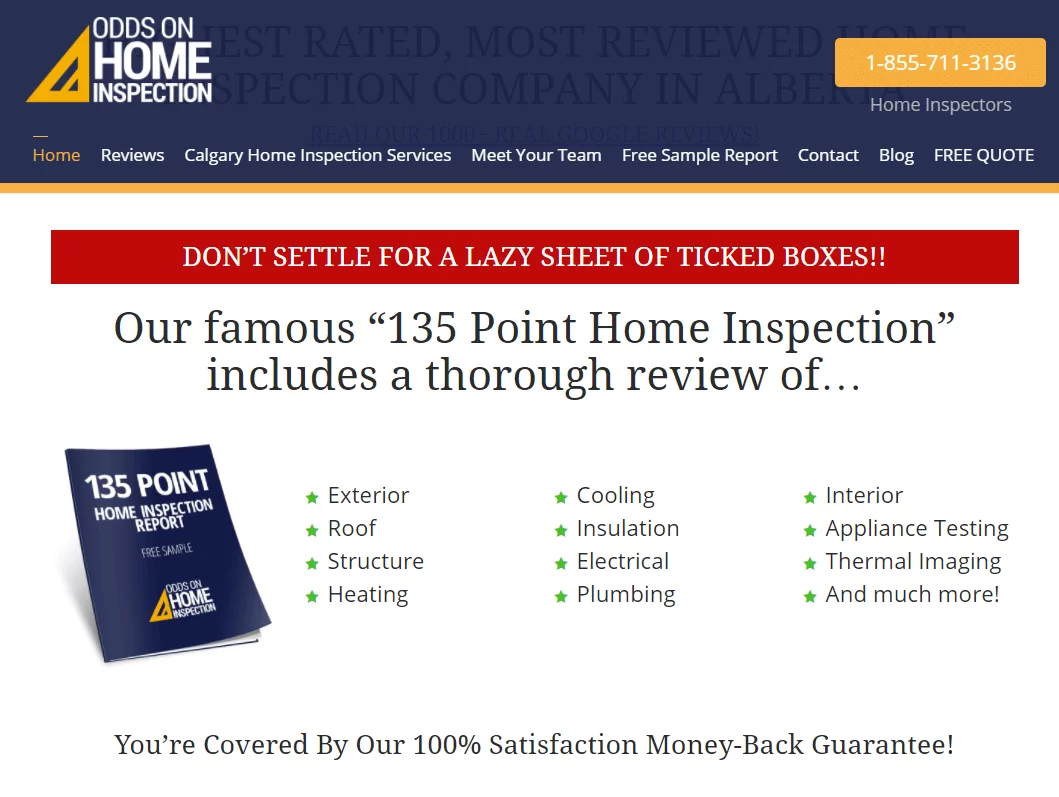
Source: Odds On Home Inspection
Other real estate lead magnet topics might include:
- List of homes in your neighborhood under a certain price range.
- Homebuyers’ or home sellers’ guides.
- Relocation packets.
- Neighborhood market reports.
- “How-to” e-books or videos. E.g. how to stage a home, increase curb appeal, so on.
- Free home evaluation.
- And more.
You can also include web forms in your landing pages to convert more first-time visitors into leads and extract more data from them.
See the full real estate mortgage application form example in action here: That’s a lot of valuable information you can extract from a potential lead who’s seeing your website for the first time.
When a first-time visitor fills in your multi-step form (like the one above) on your landing page, a couple of things are happening:
- They’re more engaged and spend more time on your landing page, which makes them more likely to follow through with your CTA.
- They’re getting free value or information in the form of information they’re getting. For example, you can create a multi-step form that calculates how much mortgage payment they have to make, a loan calculator on how much money they can borrow, find an expert advisor based on their requirements, and more.
- They’re more likely to fill in the form as multi-step forms are much easier to process. If you see 10 questions at the same time, you feel more overwhelmed, compared to having everything nicely presented on different stages.
- And finally, you get more specific data from your customers, you can even preview leads before accepting or rejecting them, and boost your overall conversion rate.
By qualifying leads, you decide who to work with, while saving time and money because you’re not getting on a call with just anyone.
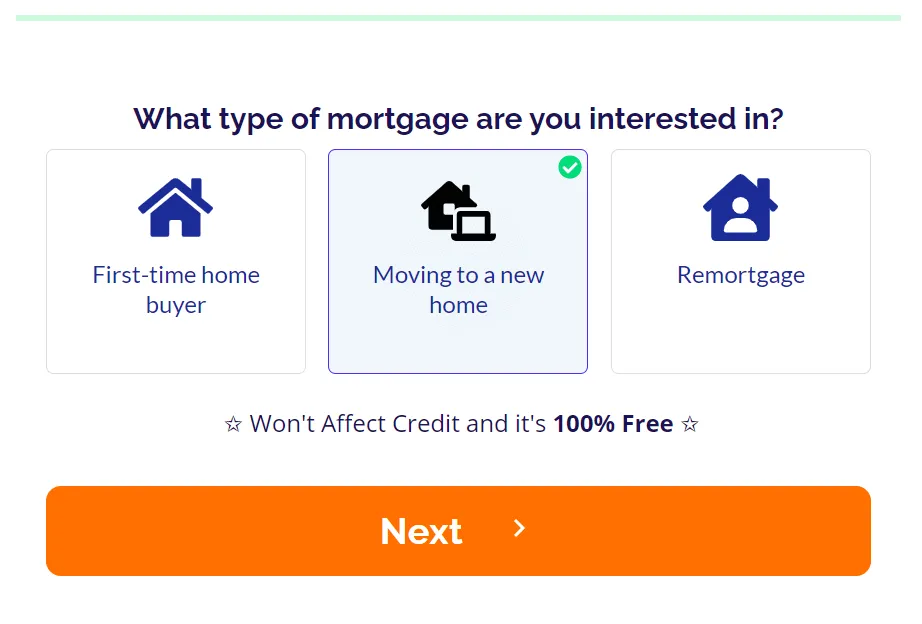
4. Use Multi-Step Forms to get more frequent and higher-quality leads
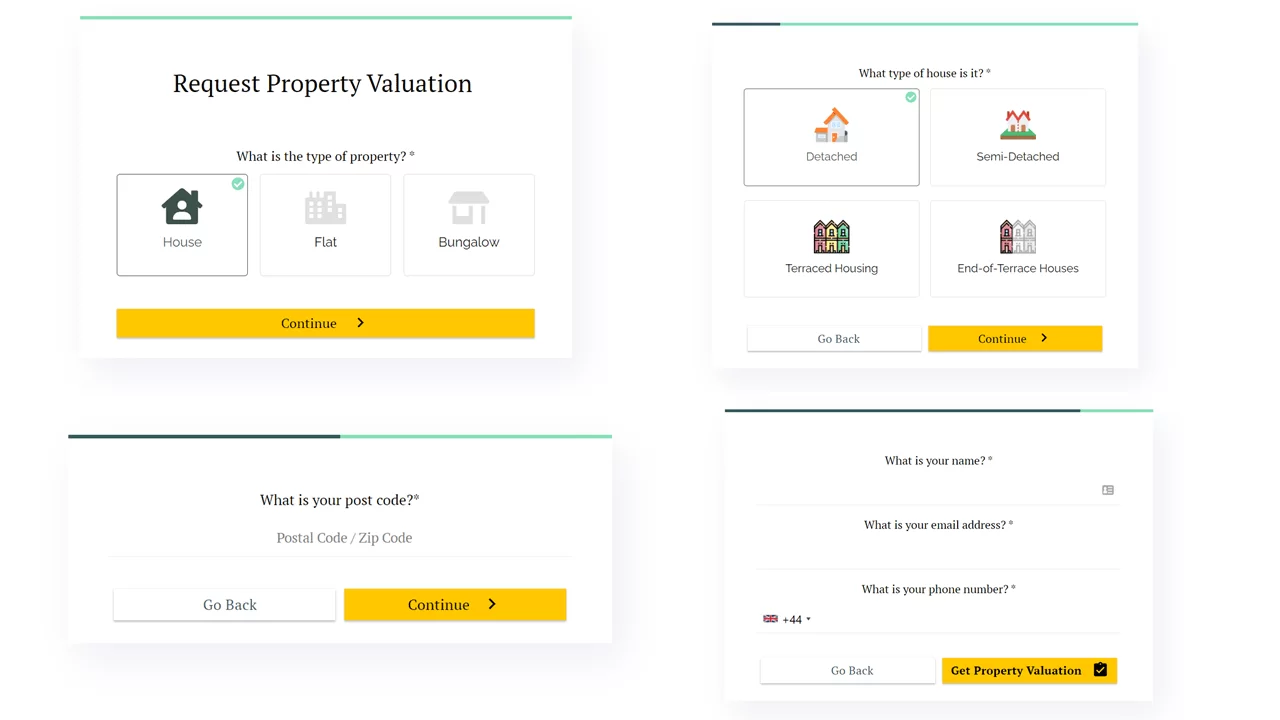
Multi-step forms are tools to capture responses or convert visitors into leads. Because industries like real estate are highly driven by online lead capture forms, multi-step forms are an important part of your lead generation. And they’re also useful for educating and engaging your website visitors.
What makes multi-step forms different from regular web forms is that multi-step forms present different questions on different form steps, rather than a single page.
Here’s an example of a real estate multi-step form that goes on for multiple pages and asks for different information. Which are as follows:
- What type of mortgage are you interested in?
- What is the approximate purchase price?
- Estimate your credit score.
- Bankruptcy, short sale or foreclosure in the last 7 years?
- What is your email address?
- What is your phone number?
- When do you need the services?
5. Choose Your Customer-Relationship-Management System (CRM)
As a real estate agent, you know that not everyone who visits your website will be relevant to work with you.
So, you need to categorize leads and keep track of lead information so that you never run out of customers.
For this, you need a CRM (customer relationship management) tool to manage and build stronger relationships with your contacts.
The right CRM for real estate professionals can help you:
- Keep track of client and property deals, insights, and other information in an easy-to-access place.
- Automatically update lead contact information with the latest details.
- Track conversion history, your portfolio, and other sales activity in a visual pipeline.
- Segment lists in your lead capture forms to save you valuable time.
- And much more.
Tools like Pipedrive can help you shorten your overall sales cycles by empowering you with the right information for each of your leads. Other CRMs you can use include:
- HubSpot CRM.
- Zillow Real Estate CRM.
- Contactually.
- Bitrix24
- And more.
.
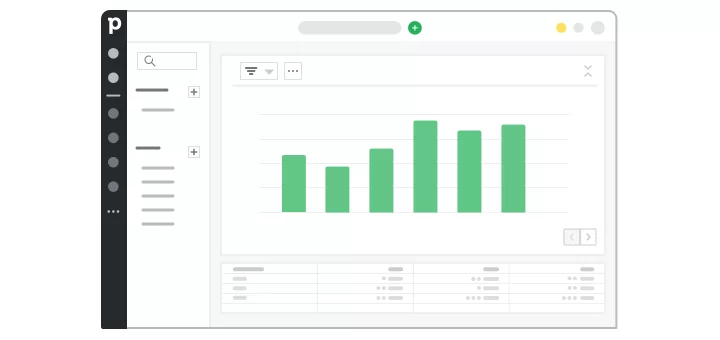
Source: Pipedrive
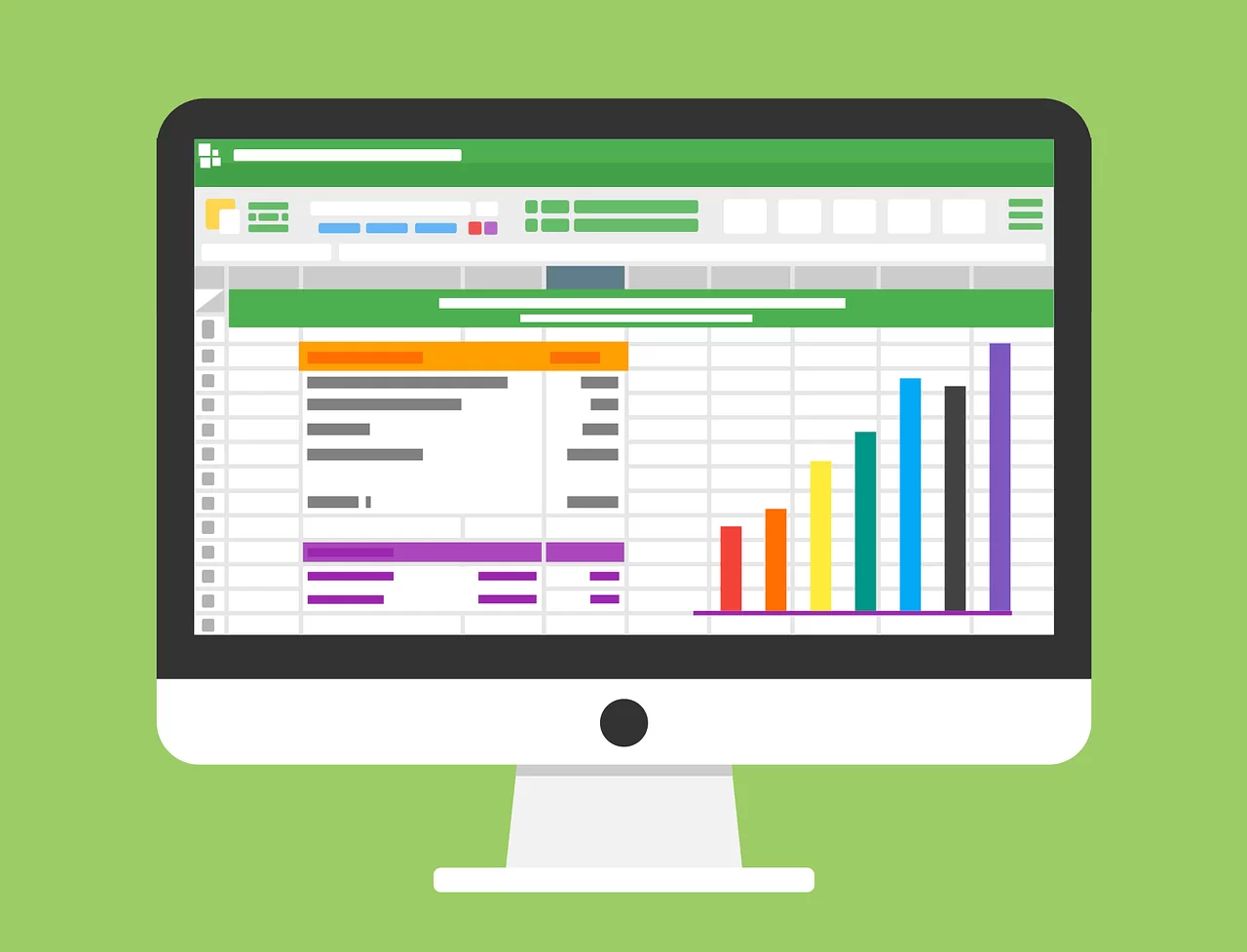
There are plenty of CRM choices out there. Ideally, you should pick one that’s been designed for successful real estate agents specifically (like Pipedrive). The key is to choose a CRM with features aligned to your real estate business goals.
Then, to take this to the next level, you can integrate your CRM with the rest of your website.
So that whenever someone fills in your web form, you get a notification, and the prospect’s contact information is automatically stored under the right section (e.g. if they’re a qualified lead or not).
From there, you can follow up with the lead accordingly.
Ready to start gaining more real estate leads?
Let’s take a look at some real estate landing page examples to see what they do right and what you can do to improve your own page.
Top 3 Real Estate Landing Page Examples

1. OpenAgent
Source: https://www.openagent.com.au/
- Free “What’s your property worth?” lead magnet.
- Multi-step form to compare the top real estate agents in your area. This leads to selecting top-performing agents for your objective, what type of property you’re selling, and other information.
- Includes free property reports and a commission calculator to keep visitors on the website longer.
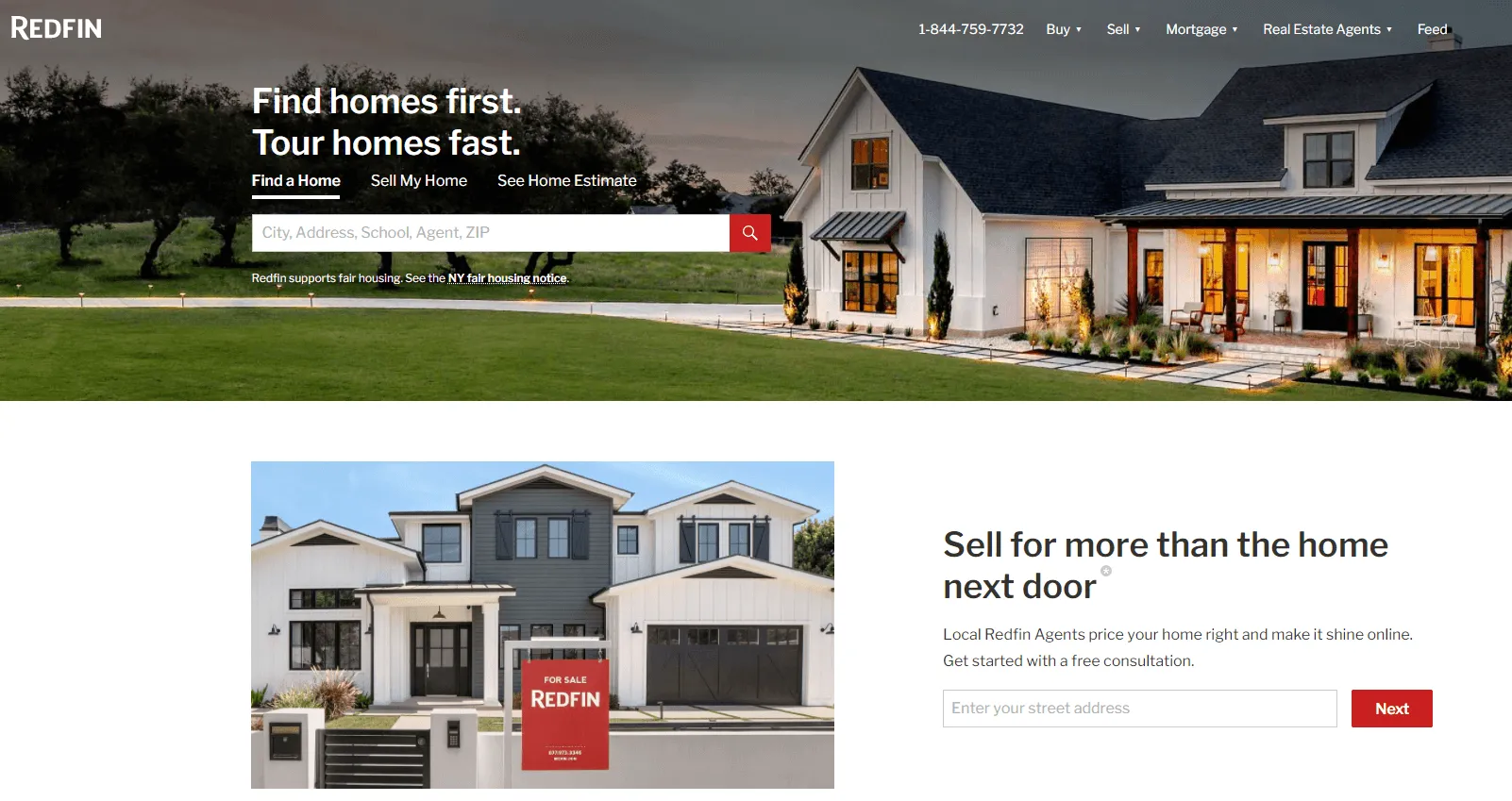
2. Redfin
Source: https://www.redfin.com/
- Very clear benefits and pain points real estate customers care about (“tour homes fast”, “sell for more than the home next door”, etc.).
- Free consultation in exchange for email address web form.
- “How much is my home worth?” web form on a different page
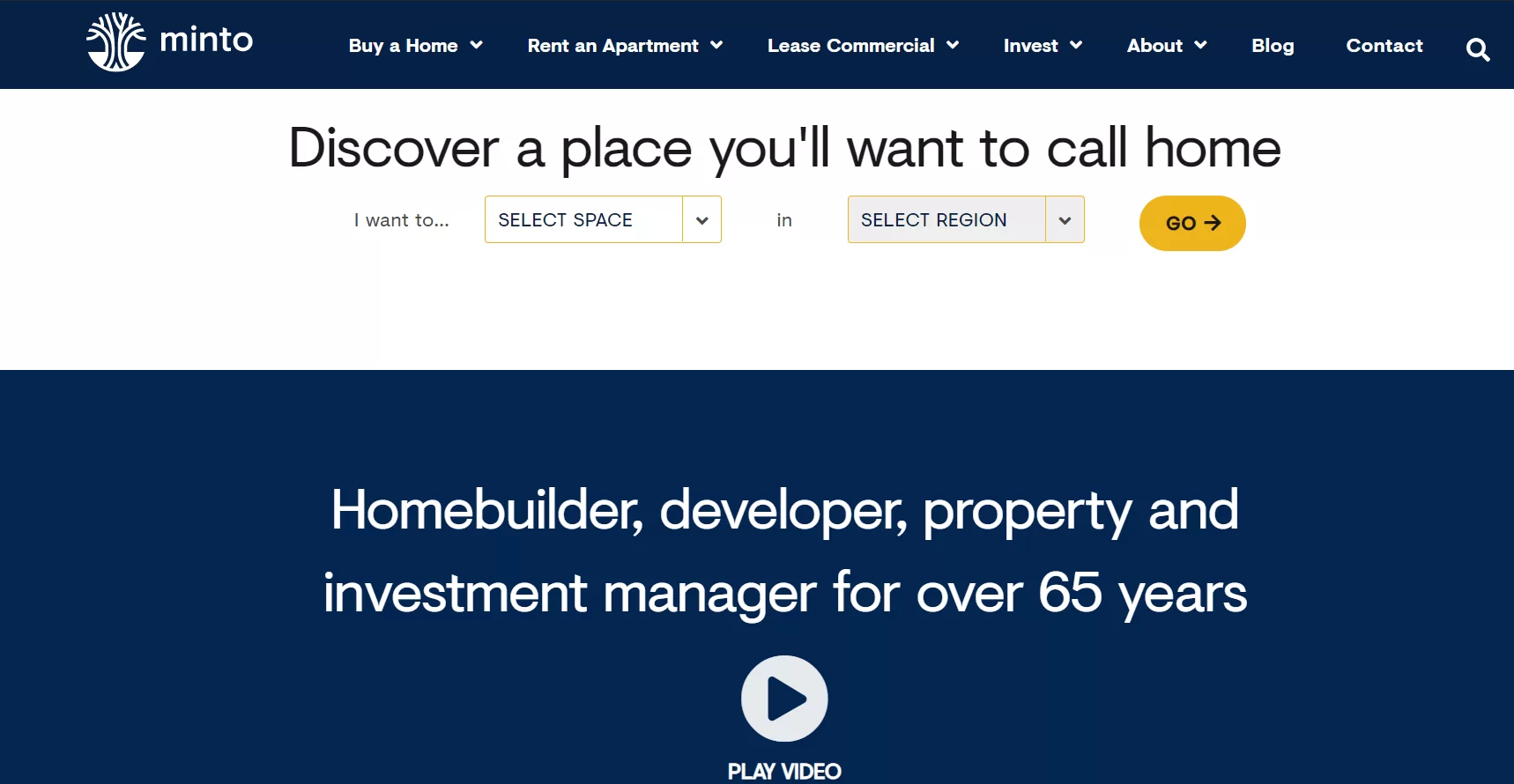
3. Minto
Source: https://www.minto.com/
- An interactive form that leads to a map of apartment rentals in the region.
- Engaging video with company story.
- Clear company benefits and what they offer.
Top Real Estate Lead Generation Forms
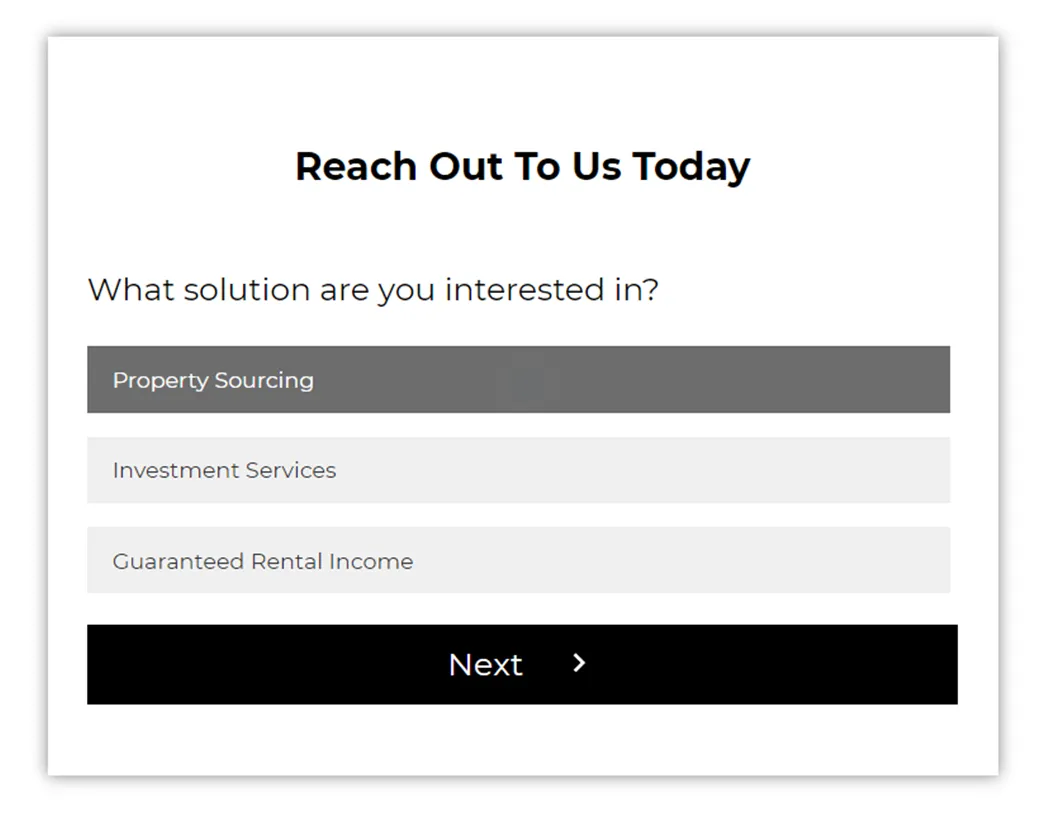
1. Real estate contact form
Lead capture form
- Gathers essential information like the type of real estate solution visitors are looking for, space to leave a custom message, and finally, contact information.
- Multi-step form that tracks progress and how many steps are left.
- Simple design choices which make the form look great on any contact page (customizable).
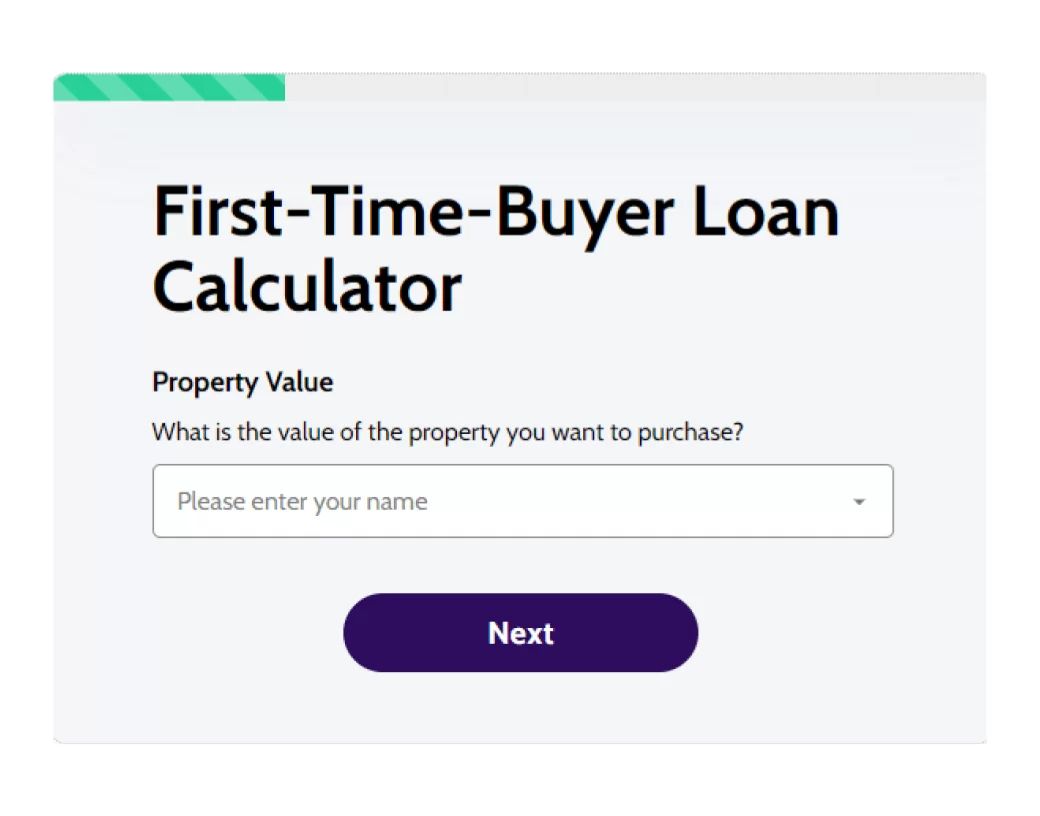
2. Home-buyer loan calculator
Calculator form
- Easy way to show new homebuyers a calculator on how much money they can borrow.
- This real estate lead generation form goes through a step-by-step process of obtaining all essential first-time buyer loan information (property value, deposit, income, etc.).
- Branded in the Gov.UK elements form design (customizable).
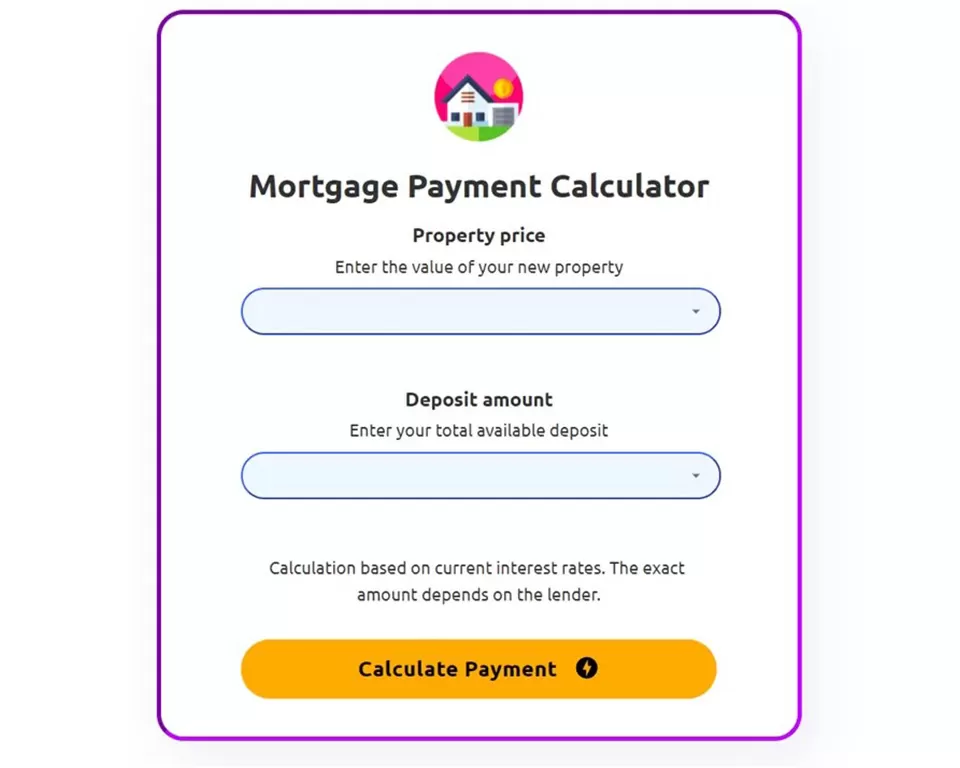
3. Mortgage payment calculator
- An interactive calculator that gives results on mortgage repayment values based on loan and interest rate formula.
- Simple, 2 question web form that doesn’t require much to set up. Gives immediate results on the next screen.
- Engaging visual elements that make the payment calculator stand out.
Interested in using top real estate lead generation formand templates?
Check out some of our top, lead-generation templates here
Frequently Asked Questions
What are the Best Real Estate Lead Generation Companies?
There are many companies that offer lead generation services for real estate professionals, and the best one for you may depend on your specific needs and preferences. Some popular real estate lead generation companies include Zillow Premier Agent, Redfin, Realtor.com, and Homes.com. Additionally, many local and regional real estate companies offer lead generation services as well. Some agents may prefer to use a company that specializes in lead generation for their specific area or type of property. It is best to research and compare different companies and their services before making a decision.
How is Realtor Lead Generation Different to Landlord Lead Generation?
Realtor lead generation and landlord lead generation are two distinct types of lead generation that target different audiences and have different goals.
Realtor lead generation focuses on finding potential home buyers and sellers, and the leads generated are typically individuals or families looking to purchase or sell a property.
According to Charles Chan, CEO of Landlord Studio, these leads may be generated through online advertising, social media, search engine optimization, or other digital marketing techniques.
The focus in realtor lead generation is on finding people who are ready to buy or sell a property, and the goal is to connect them with a real estate agent who can help them with their transaction.
Landlord lead generation, on the other hand, focuses on finding potential renters and landlords. The leads generated are typically individuals or families looking to rent a property, or landlords looking to fill vacancies in their properties. For example, an agent can use LeadGen App to create a form that captures the contact information of potential renters who are interested in apartments for rent in Miami.
The agent can then use this information to contact the potential renters and schedule showings. These leads may be generated through online advertising, social media, search engine optimization, or other digital marketing techniques. The focus is on finding people who are looking for rental properties, and the goal is to connect them with a landlord or property management company who can help them find a suitable rental.
How to do Lead Generation For Real Estate Agents?
There are many ways to generate leads for real estate agents, including:
- Online Advertising: Online advertising platforms like Google AdWords, Facebook Ads, and Instagram Ads can be used to target specific audiences and generate leads.
- Search Engine Optimization: Optimizing your website for search engines can help you appear higher in search results and attract more leads.
- Social Media: Platforms like Facebook, Instagram, and LinkedIn can be used to connect with potential clients and generate leads.
- Email Marketing: Sending targeted email campaigns to potential clients can help generate leads and keep in touch with past clients.
- Referrals: Ask satisfied clients to refer friends and family who are in the market for buying or selling a property.
- Networking: Attend local events, join clubs or groups, and build relationships with other professionals in your community.
- Open House: Hosting open houses can generate leads by attracting potential buyers to view your properties.
- Direct mail: Sending postcards or flyers to targeted neighborhoods can generate leads by introducing your services to potential clients.
It’s important to remember that each method needs to be tailored to your target audience and area. Additionally, using various real estate agent lead sources, it’s important to have a follow-up system in place to reach out to leads and keep in touch with them.
How to keep track of Real Estate Leads?
There are several ways to keep track of real estate leads. Real estate lead generation software and other ways include:
-
- CRM (Customer Relationship Management) software: CRM software allows you to store and organize all of your leads’ information in one place and also provides tools to manage and track your interactions with leads.
- Lead tracking spreadsheet: You can create a spreadsheet to track leads manually, where you can input all of the leads’ information, and keep track of the leads’ status and notes.
- Lead capture forms on your website: Using LeadGen App you can create a lead capture form on your website, and leads can either be managed via your lead section inside the account, or you can use integrations to automatically pass leads to your CRM or spreadsheet.
- Lead management apps: There are many lead management apps available that can be used to manage and track leads, and some of these apps can also be integrated with your website and other marketing tools.
- Be organized: Be sure to have a system in place that allows you to easily access and update the lead’s information.
- Follow-up system: Create a follow-up system that reminds you to reach out to leads and keeps you on top of your interactions with No matter what system you choose, it’s important to make sure that it’s easy to use and allows you to quickly access and update lead information. Additionally, it’s important to regularly review your leads and update their information and status as needed.
How does Real Estate Brokerage Lead Generation Work?
Real estate brokerage lead management is the process of organizing and nurturing leads generated by a brokerage’s marketing efforts to convert them into clients. The process typically includes the following steps:
- Lead capture: Leads are generated through a variety of channels, such as online advertising, search engine optimization, social media, and networking. The leads are then captured and stored in a lead management system, such as CRM software.
- Lead qualification: Once a lead is captured, it’s important to qualify the lead. This means determining the lead’s level of interest and readiness to buy or sell a property. Qualifying leads helps the brokerage focus its efforts on the most promising leads.
- Lead distribution: Once leads are qualified, they are distributed to the appropriate agents within the brokerage. This ensures that each lead is handled by an agent with the right expertise and resources to convert it into a client.
- Lead nurturing: After leads are distributed, they need to be nurtured to keep them engaged and move them further down the sales funnel. This can include sending relevant information and updates, following up with leads, and providing helpful resources.
- Lead conversion: The final step is to convert leads into clients. This typically involves working with the lead to find a suitable property and completing the necessary paperwork and transactions.
- Lead tracking and reporting: Lead management systems usually provide the ability to track leads and report on their status, which can help the brokerage to understand which marketing efforts are the most effective.
It’s important to note that lead management is an ongoing process, and brokerage needs to continuously generate, qualify, distribute, nurture, and convert leads to keep their pipeline of clients full and maintain a steady business.
Conclusion
So, to recap, one of the best ways to generate qualified real estate leads is to optimize your website and online presence for lead generation.
This way, when a cold prospect lands on your web page for the first time, they’ll want to download your lead magnet or immediately fill in your web form to get in touch with you.
Then, you can also leverage social proof and previous customer feedback to start converting more leads.
Finally, once you’re getting a consistent inflow of leads, you can categorize them in your CRM and manage your leads accordingly.
Now, let’s sum up some of the most frequent questions when it comes to real estate lead generation.
- What is the best lead generation for real estate?
There are many different lead generation tactics you can try out. But if you’re looking to start generating free and qualified leads, you can try the tactics mentioned above:
- Leveraging customer feedback.
- Categorizing leads.
- Optimizing your landing page for lead generation.
- Using lead magnets to educate your leads.
- Using multi-step forms to boost your landing page conversion rate and get more leads from people who land on that page.
- What is a lead in real estate?
A real estate lead is anyone who’s interested in using your services to buy, rent, or sell their house. For real estate agents, a steady flow of leads is essential in growing your business.
- What is an unqualified lead?
Not all leads are created equal. An unqualified lead is someone who might be interested in what you’re selling, but they don’t have enough information to pull the trigger yet. Consider educating them more, offering an alternative service, or better explaining your process. Sometimes, they might not be ready to buy straight away, but might do so later on.
Now, are you ready to start consistently generating more real estate leads from your landing page?
Start using LeadGen App for free to capture more leads through best web forms for real estate brokers, designed for lead generation specifically!
Try It Out Yourself
Make the most of your website visitors and generate new customers and more sales for your real estate business.
✓ 14-Day Trial
